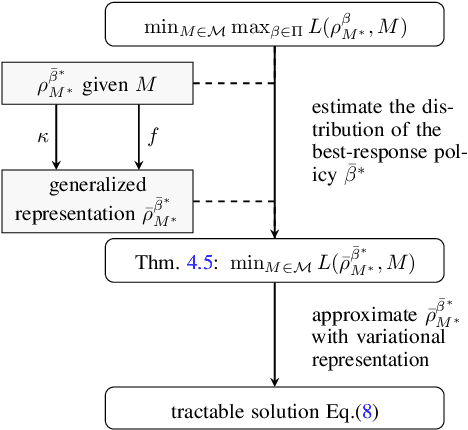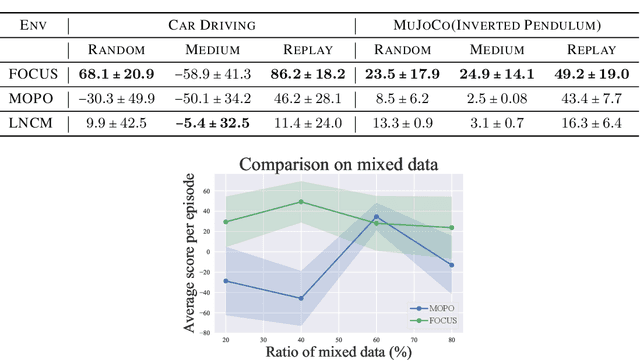Zheng-Mao Zhu
Adversarial Counterfactual Environment Model Learning
Jun 10, 2022



Abstract:A good model for action-effect prediction, named environment model, is important to achieve sample-efficient decision-making policy learning in many domains like robot control, recommender systems, and patients' treatment selection. We can take unlimited trials with such a model to identify the appropriate actions so that the costs of queries in the real world can be saved. It requires the model to handle unseen data correctly, also called counterfactual data. However, standard data fitting techniques do not automatically achieve such generalization ability and commonly result in unreliable models. In this work, we introduce counterfactual-query risk minimization (CQRM) in model learning for generalizing to a counterfactual dataset queried by a specific target policy. Since the target policies can be various and unknown in policy learning, we propose an adversarial CQRM objective in which the model learns on counterfactual data queried by adversarial policies, and finally derive a tractable solution GALILEO. We also discover that adversarial CQRM is closely related to the adversarial model learning, explaining the effectiveness of the latter. We apply GALILEO in synthetic tasks and a real-world application. The results show that GALILEO makes accurate predictions on counterfactual data and thus significantly improves policies in real-world testing.
Offline Reinforcement Learning with Causal Structured World Models
Jun 03, 2022



Abstract:Model-based methods have recently shown promising for offline reinforcement learning (RL), aiming to learn good policies from historical data without interacting with the environment. Previous model-based offline RL methods learn fully connected nets as world-models that map the states and actions to the next-step states. However, it is sensible that a world-model should adhere to the underlying causal effect such that it will support learning an effective policy generalizing well in unseen states. In this paper, We first provide theoretical results that causal world-models can outperform plain world-models for offline RL by incorporating the causal structure into the generalization error bound. We then propose a practical algorithm, oFfline mOdel-based reinforcement learning with CaUsal Structure (FOCUS), to illustrate the feasibility of learning and leveraging causal structure in offline RL. Experimental results on two benchmarks show that FOCUS reconstructs the underlying causal structure accurately and robustly. Consequently, it performs better than the plain model-based offline RL algorithms and other causal model-based RL algorithms.
 Add to Chrome
Add to Chrome Add to Firefox
Add to Firefox Add to Edge
Add to Edge